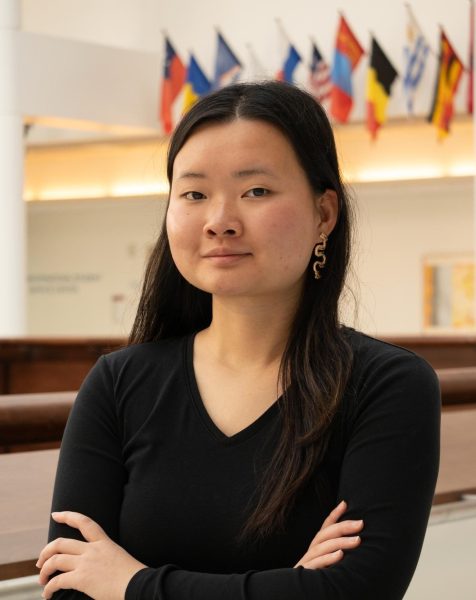Job hunting in 2025 is a new territory for new graduates that is becoming challenging to navigate for all job seekers.
With the rise of artificial intelligence and the devaluation of education, the current job market is unsustainable for advancing human capital and the workforce.
According to the Federal Reserve Bank of New York, “The labor market for recent college graduates deteriorated noticeably in the first quarter of 2025. The unemployment rate jumped to 5.8 percent… and the underemployment rate rose sharply to 41.2 percent.”
This concerning statistic could be attributed to the labor market failing to recover from previous recessions.
Derek Thompson, a writer for The Atlantic, argues that the labor market never bounced back from the 2008 financial crisis and has been further interrupted by the pandemic and inflation.
“Young people are having a harder time finding a job than they used to, and it’s been going on for a while, at least 10 years,” David Deming, an economist at Harvard University said to Thompson.
An emerging reason as to why new graduates are having difficulty finding new jobs is AI’s involvement in the hiring process. From evaluating resumes by keywords to conducting interviews, AI has taken over human resources’ job of screening candidates.
“Facial recognition and voice analysis algorithms can evaluate candidates’ responses, tone, and emotional intelligence, scoring them against predefined success metrics,” Forbes said.
While AI interviews leave room for concern and bias, AI has also taken over entry-level jobs. A recent example of this is when Duolingo announced it will be “AI-first”, meaning Duolingo will “gradually stop using contractors to do work that AI can handle,” CEO Luis von Ahn said. The decision to have AI replace entry-level jobs limits opportunities for new graduates and those making a career switch.
However, AI has also taken on the coursework of college students and reduced the amount of labor and intellectually stimulating work students need to develop in higher education.
This not only weakens students’ ability to learn for themselves but also makes younger generations increasingly reliant on AI. At its core, it contributes to the shift of higher education being devalued.
The AI dilemma cycles back into the value of a college degree. Initially stating that college would guarantee a student a high-earning job, the message evolved into only certain majors that would yield good paying jobs, and eventually into whether an undergraduate degree is sufficient at all.
In a job market where AI can take over graphic design and computer science, undergraduate degree holders find themselves struggling to stand out.
It highlights the underlying implication that higher education should be seen as a mere transaction.
“How can we expect [students] to grasp what education means when we, as educators, haven’t begun to undo the years of cognitive and spiritual damage inflicted by a society that treats schooling as a means to a high paying job, maybe some social status, but nothing more?” Troy Jollimore, a professor at California State University, Chico, wrote.
Fake job listings, called ghost jobs, and ghosting, meaning avoiding communication, have been increasing in the job market as well.
“Greenhouse figured out that between 18% and 22% of jobs advertised in 2024 were appeals for new workers that never actually got filled” the Wall Street Journal said.
WSJ continues by using the experience of Serena Dao, an MBA candidate at Carnegie Mellon’s Tepper School of Business.
“[Dao] ultimately never heard back from 116 companies, including several where she had already made it through two or three rounds of interviews, flown in to meet with executives or tackled take-home assignments that required several hours of work.” Dao was eventually successful in finding a job by networking, which WSJ stated was “key to landing a job than at any point in recent history.”
Allowing the job market to continue in its current direction will be detrimental to the future of the economy. By creating barriers to gaining necessary experience, the job market is killing off equal opportunity and putting more individuals in financially dire circumstances.
The Kafkaesque cycle of job hunting in 2025 can be alleviated through human emphasis. Whether that human emphasis comes from professionals networking with college graduates or a movement against AI, either would be a first step towards saving the workforce.
An even more effective way would be to end corporate greed at its root instead of requiring applicants to adapt to the high demands of the changing landscape, which is often inaccessible for the lower class.






